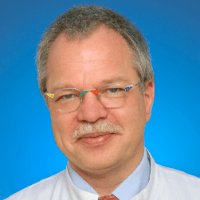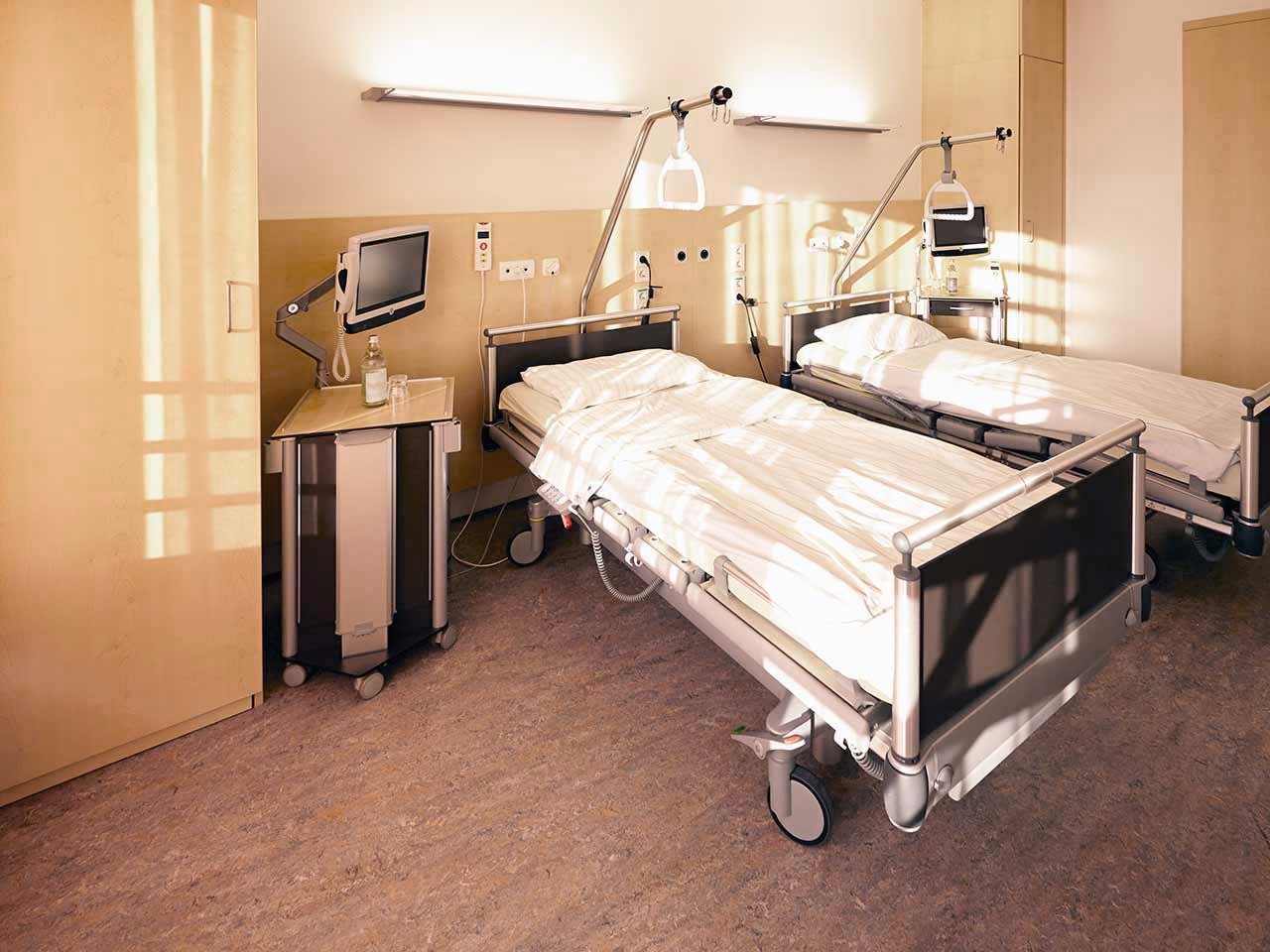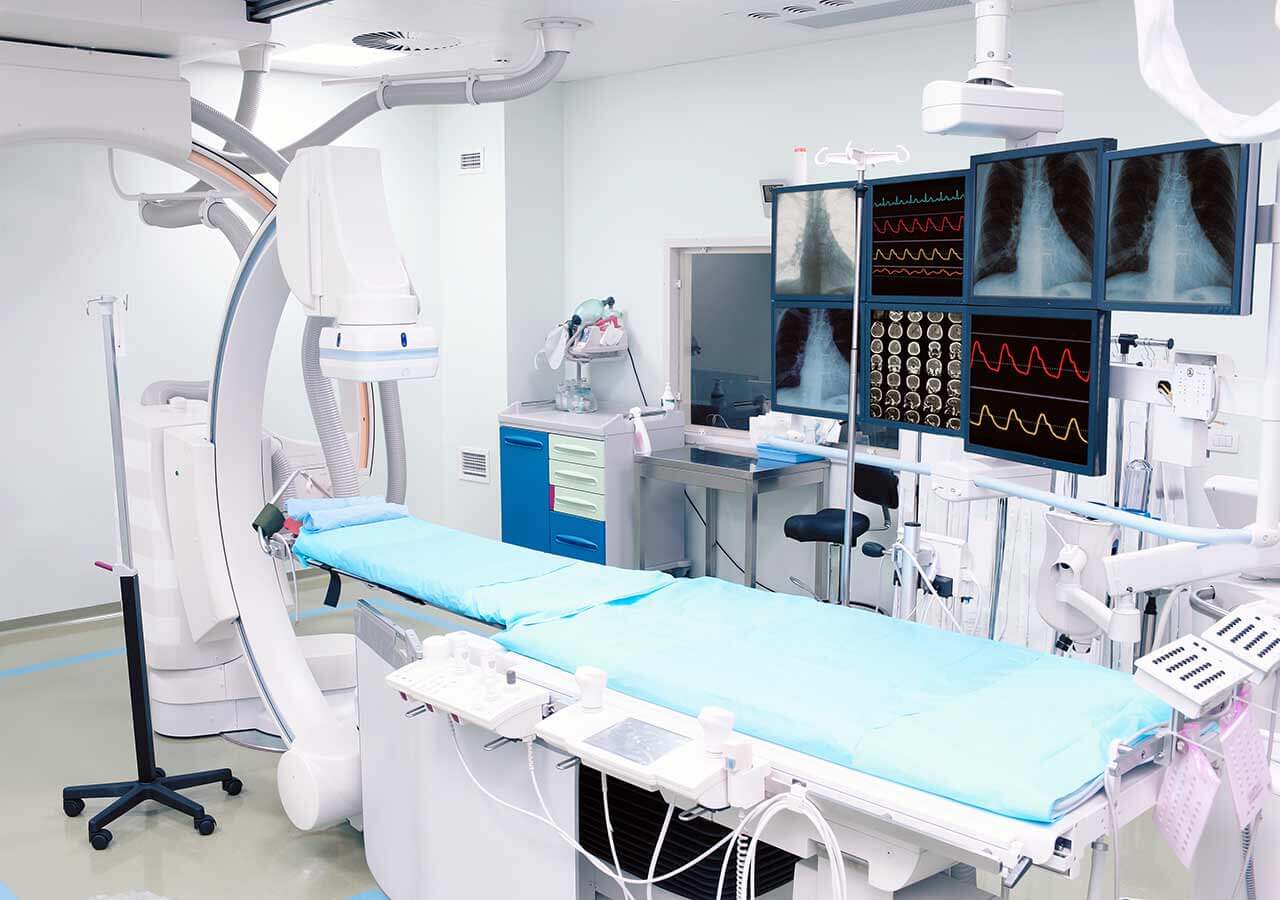
The program includes:
- Initial presentation in the clinic
- clinical history taking
- review of medical records
- physical examination
- neurological examination
- mental status examination
- laboratory tests:
- complete blood count
- biochemical blood test
- inflammation markers (CRP, ESR)
- blood coagulation analysis (aPTT, PT, INR)
- L-Dopa-Test
- rheoencephalography (REG)
- electroencephalography (EEG)
- brain CT/MRI
(if indicated clinically, additional cost is 650/1200€) - nursing services
- services of all leading experts
- explanation of individual treatment plan
Required documents
- Medical records
- MRI/CT scan (if available)
Service
You may also book:
 BookingHealth Price from:
BookingHealth Price from:
About the department
According to the Focus magazine, the Department of Neurology at the University Hospital Jena ranks among the top German medical centers specializing in the treatment of multiple sclerosis and Parkinson's disease!
The department offers the full range of services for the accurate diagnostics and effective treatment of acute and chronic diseases of the central and peripheral nervous system. The department's specialists provide treatment of epilepsy, memory problems, headaches, multiple sclerosis, motor disorders, etc. In addition, the department is also a certified Stroke Center. The Chief Physician of the department is Prof. Dr. med. Otto Witte.
The department is proud of its experienced medical team, which consists of more than 150 employees. The specialists have all the modern medical developments in their specialization and provide the highest level of medical care. In addition to the successful clinical activities, the department is also engaged into active research on the study of various aspects of the functioning of the nervous system and its disorders, ranging from molecular neurobiology to new methods of brain imaging diagnostics.
The main clinical activities of the department include:
- Diagnostics and treatment of motor disorders
- Parkinson's disease
- Atypical Parkinson's disease
- Dystonia
- Hemifacial spasm
- Tremor
- Spasticity
- Diagnostics and treatment of epilepsy
- Diagnostics and treatment of impaired memory, attentiveness and working capacity
- Diagnostics and treatment of neurological vascular diseases
- Multiple extracranial vascular stenoses and/or occlusions
- Intracranial vascular stenoses and/or occlusions
- Rupture (dissection) of vessel walls
- Cerebral aneurysms
- Conditions after extra- or intracranial stent implantation (transluminal angioplasty using a stent)
- Coagulopathy (mutation in gene coagulation factor V, platelet dysfunction)
- Diagnostics and treatment of headaches
- Migraine (including chronic one)
- Tension headache (including chronic one)
- Cluster headache
- Medication overuse headache
- Diagnostics and treatment of multiple sclerosis
- Diagnostics and treatment of neuromuscular diseases
- Motor neuron diseases (for example, amyotrophic lateral sclerosis)
- Spinal muscular atrophy
- Hereditary spastic spinal paralysis
- Myositis (for example, polymyositis, dermatomyositis, etc.)
- Myopathies (congenital or acquired)
- Myasthenia
- Congenital neuropathies (for example, Charcot–Marie–Tooth disease)
- Rare congenital neuromuscular metabolic disorders (for example, Pompe disease)
- Rare congenital amyloid disorders with neuropathies (for example, transthyretin familial amyloid polyneuropathy)
- Diagnostics and treatment of sleep disorders
- Sleep-onset insomnia and sleep structure disorders
- Narcolepsy and other types of hypersomnia
- Restless legs syndrome
- Sleep-related breathing disorders
- Sleep-wake rhythm disorders
- Diagnostics and treatment of stroke
- Diagnostics and treatment of dizziness
- Benign paroxysmal positional vertigo
- Vestibular migraine
- Acute vestibular failure
- Meniere's disease
- Bilateral vestibulopathy (bilateral lesion of the vestibular system)
- "Psychogenic" types of dizziness
- Central vestibular dizziness
- Diagnostics and treatment of other neurological diseases
Curriculum vitae
Professional Career
- Study of Medicine at the Universities of Muenster and London; postgraduate study of Philosophy, Psychology and Sociology at the University of Muenster, as well as distance learning of Mathematics at the University of Hagen.
- 1982 Board certification.
- 1983 PhD thesis defense with honours.
- Research and clinical activities at the University Hospitals Muenster and Duesseldorf.
- Internship at the Johns Hopkins University in Baltimore (USA).
- 1991 Doctoral thesis defense on epilepsy research.
- Since 2001 Head of the Department of Neurology at the University Hospital Jena.
- Since 2001 Professorship in Neurology at the Friedrich Schiller University.
- Numerous awards and prizes, including twice winner of the Alfred Hauptmann Prize of the International League Against Epilepsy.
Photo of the doctor: (c) Universitätsklinikum Jena
About hospital
According to the prestigious Focus magazine, the University Hospital Jena regularly ranks among the top German medical facilities!
The hospital has positioned itself as a multidisciplinary medical facility with a long history of more than 200 years. Since its foundation, the hospital has been constantly developing and modernizing, thanks to which nowadays it offers patients the highest level of treatment in Germany based on the use of innovative technologies and the very latest therapeutic techniques. The hospital consists of 26 specialized departments and 25 research institutes. It treats more than 53,600 inpatients and about 274,000 outpatients every year. The staff of the hospital includes more than 5,600 competent doctors.
The extensive resources of the university hospital, high treatment standards, and the introduction of new research developments provide first-class treatment in Germany meeting the stringent international standards. The hospital has an excellent reputation not only in Germany, but also far beyond its borders, due to which it accepts a large number of foreign patients for the diagnostics and treatment.
Despite the technical progress and the availability of accurate computerized systems, the patient’s physical health and emotional state is the main value of each employee of the hospital, since some diagnoses cause emotional distress in patients. The doctors of the hospital believe that the key to a successful result is a comprehensive and individual approach, so they spend a lot of time talking with patients, listen carefully to all their wishes and support at all stages of the therapeutic process. All this in combination with high-precision diagnostic techniques and the very latest types of therapy forms a solid basis for the achievement of an optimal treatment result.
Photo: (c) depositphotos
Accommodation in hospital
Patients rooms
The patients of the University Hospital Jena live in comfortable single and double rooms made in a modern design. Each patient room is equipped with an ensuite bathroom with shower and toilet. The room has enough space to store personal belongings, as well as a table and chairs for receiving visitors. A bedside table can be converted into a table so that patients can eat right in their bed. Each room has a TV, and there is also access to the Internet. In addition, the hospital offers enhanced-comfort rooms.
Meals and Menus
The patient and his accompanying person have a daily choice of three menus. If for some reason the patient does not eat all the foods, he will be offered an individual menu. Please inform the medical staff about your dietary preferences prior to the treatment.
Further details
Standard rooms include:
Religion
Religious services are available upon request.
Accompanying person
During the inpatient program, an accompanying person may stay with you in a room or at the hotel of your choice.
Hotel
During the outpatient program, you can live at a hotel of your choice. Managers will help you to choose the most suitable options.





